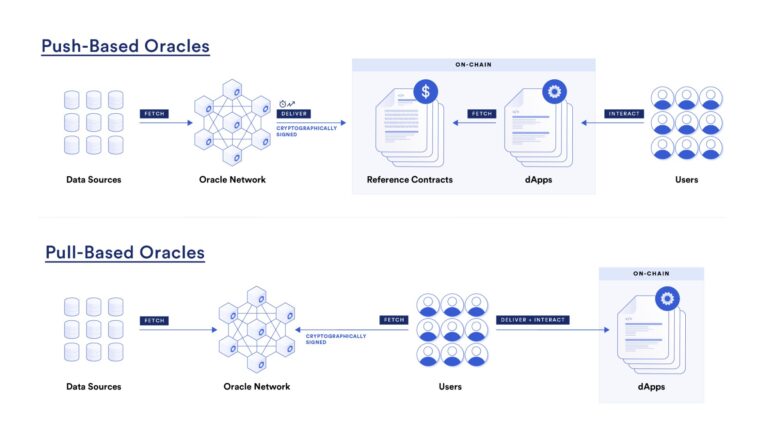Chainlink’s Low-Latency Oracle: An Answer to DeFi Derivatives’ Challenges
Share this article
Chainlink, a decentralized blockchain oracle, is set to change the DeFi derivatives market with its low-latency oracle solution. The new technology works to mitigate the key challenges faced by the DeFi sector, particularly data latency, lack of pre-settlement data privacy and hefty maintenance costs.
As a generalized Web3 services platform, the Chainlink Network supports both push-based and pull-based oracle architectures to enable oracles to meet the diverse data requirements of Web3.
The result?
A connected data-rich environment, empowering the on-chain finance ecosystem.
— Chainlink (@chainlink) July 26, 2023
DeFi derivatives rely heavily on up-to-the-minute, accurate market data for successful trade execution. Current systems, however, suffer from increased latency and reduced data freshness, which can compromise trade quality and open avenues for value extraction. And, oracles traditionally follow a push-based model where they proactively feed data to smart contracts.
Chainlink’s proposed solution adopts a pull-based approach, which stands as a radical departure from the traditional push-based oracles. In this model, oracle updates are generated per block, and users can retrieve these updates off-chain and validate them with their on-chain transaction, significantly reducing latency.

While push-based oracles make data available to smart contracts without solicitation, pull-based oracles flip the script by allowing the contracts to retrieve data as needed. This mechanism can provide better control over when and how data is received, making it an optimal choice for real-time and highly volatile markets like DeFi derivatives.
Moreover, the pull-based oracle solution tackles the challenge of pre-settlement data privacy, a significant issue in the DeFi space. By keeping prices private until transactions are settled, it effectively mitigates the risk of frontrunning:
“Publicly viewable oracle data before trade settlement can result in the same value extraction issues as (and even cause additional issues) as high data latency and reduced freshness.”
Chainlink’s pull-based solution also promises to be highly gas-efficient, as it negates the need to publish data to a separate blockchain before on-chain delivery. It is expected to be available for testing by the end of this year, powered by the same secure oracle nodes that underpin Chainlink’s data feeds.
